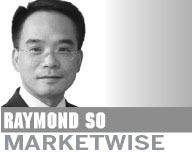'Occupy Central' reveals potential problems facing Hong Kong
Updated: 2012-08-16 06:48
By Raymond So(HK Edition)
|
|||||||||

Central is the heart - the most important political and commercial center - of Hong Kong. The headquarter building of HSBC is also located at Central. Its two big bronze lions at the building's entrance are the symbols of the Bank, as well as Hong Kong's financial sector.
Last year, a group of young people started to "live" in the open area under HSBC's Headquarters. According to these young people, their actions were manifestations of the "Occupy Wall Street" campaign in the US. Hence, this event is known as "Occupy Central" in Hong Kong. Unlike their US counterpart, "Occupy Central" does not aim to protest against any particular bank. The young people have varied advocates. Some are against capitalism, others are against international banks, another group is against high property prices, a fourth group is against the government, and a fifth group is simply against the mandatory provident fund (MPF). In simple words, the "Occupy Central" event has diversified advocates among the organizers and there are no concrete actions.
Looking at HSBC, the bank has simply adopted a "don't care" strategy toward the demonstrators and did not drive them out of the place. After a week or two of news coverage by the local media, the "Occupy Central" campaign soon lost steam, disappearing from the media's radar.
Nevertheless, the "Occupy Central" campaign appeared again in the local papers recently, thanks to a court case initiated by HSBC. The demonstrators have re-gained public attention about their activities. As far as HSBC is concerned, the bank has won a court case in which the court has ordered the occupants to evacuate the place. Of course, many of the demonstrators insist that they will not leave.
It must be pointed here that HSBC has exercised the utmost political wisdom in handling this incident. If HSBC did clear out the demonstrators in the first place, it could have become an ugly incident and big news since the demonstrators would surely have resisted ending in some form of confrontation. Instead, HSBC gave the demonstrators sufficient time to voice out their requests. Unlike the US counterparts, "Occupy Central" did not gain much support from the public. HSBC's neutral attitude resulted in the demonstrators peacefully voicing out their claims. This also contributed a great deal to cool down the negative impacts of the "Occupy Central" action. In short, HSBC was clever enough to tone down the "Occupy Central" event.
Another important difference between "Occupy Central" and "Occupy Wall Street" is that the Hong Kong public is not against the fat cats as much as those in the US. No doubt the subprime crisis was caused by imprudent financial innovations in the US. To the US, the taxpayers needed to rescue Wall Street. But soon after the crisis blew over, the big Wall Street tycoons quickly forgot the taxpayers' bailout and continued to reward themselves with handsome bonuses, resulting in a subsequent uproar by the public. Comparatively, Hong Kong's financial tycoons were not that well compensated, and people did not protest against them.
Nevertheless, the "Occupy Central" did reveal some of the potential problems that Hong Kong needs to consider carefully. Despite the campaign winning little support from the public, the demonstration did show the extreme views of some young people, and this is a warning signal to Hong Kong. In the past, the city was proud of its focus on development. But the "Occupy Central" incident shows that development is not the only source of concern to the young people. Surely the Government needs to do something to pacify the extreme voices. This may sound irrelevant to business professionals, however, it is time when finance and politics cannot be separated. In order to survive in the market, apart from strong earnings and a good business model, sensible political awareness is also indispensable. HSBC has set a good example in handling the "Occupy Central" event.
The author is Dean, School of Business, Hang Seng Management College. The views expressed here are entirely his own.
(HK Edition 08/16/2012 page2)